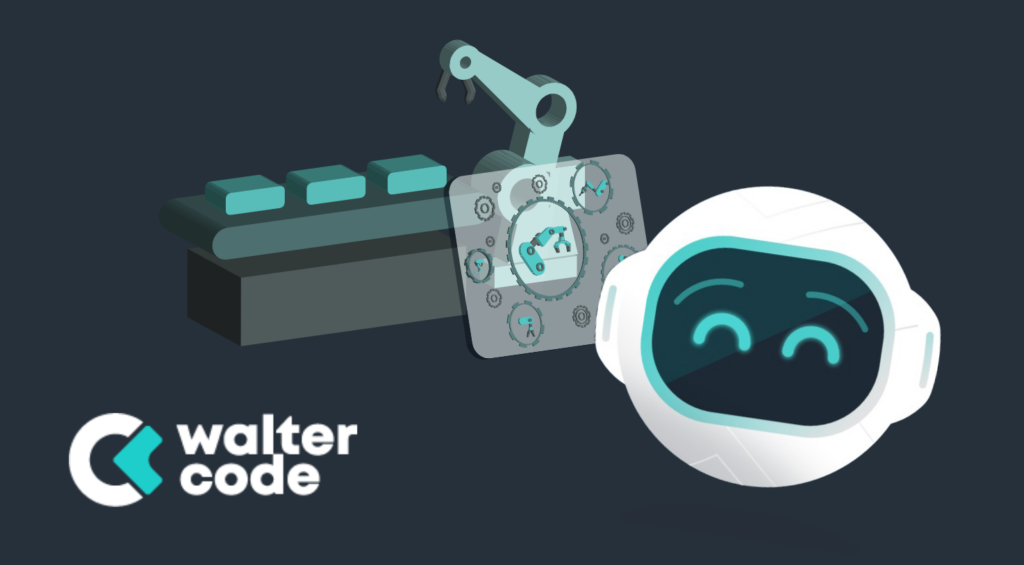
The Mechanical Industry offers a variety of job roles to mechanical engineers – design, manufacturing, testing, R&D, etc., and it allows the use of principles of physics, aeromodelling, as well as dynamics for the task of innovating the systems for more efficiency.
One thing we can say with certainty is that digitalization in the machine industry is constantly advancing, and its essential value chain functions are increasingly digitized as well, which in fact improves the industry’s product portfolio with digital functionalities and introduces innovative data-based services.
The advantages of the smart industry are enormous, reflected in the fact that they have extremely increased productivity and efficiency. The need for companies to process and integrate data from various sources has led to new collaborations and models.

Within the Mechanical Industry, digital transformation has a lot of advantages, since the technology that evolved with time now suits the needs of everyone involved in the lifecycle of a project. Product Lifecycle Management (PLM), thus, has a lot of advantages from digital transformation.
Mechanical engineering’s digital transition has resulted in considerable performance improvements.
Companies will need to incorporate and analyze data from a variety of external sources as part of Industry 4.0, which will need new cooperation models in order to realize their income potential. Closer collaboration, strategic partnerships, and cross-functional integration between diverse enterprises offering complementary technology and services will likely become the norm along the value chain and throughout the product’s lifetime.
The following categories describe the most essential features of digitalization in mechanical engineering:
The digitalization of mechanical engineering services is a fantastic opportunity to provide engineering excellence, brand-new ideas, and manufacturing solutions. There was a lot of suspicion about it catching on, as the traditional way of working is to have a mechanical engineer on-site to measure and digitize. It is not needed anymore as a large shift has happened, aided by the influence of the pandemic. With remote work being a norm for many businesses, it pushed everyone to adapt to changes in technology even quicker.
Due to new technological opportunities, a vacuum of possibilities and challenges has been created in mechanical engineering: Digitalization, as well as digital transformation, may be performed by many different players on the market.
Traditional mechanical engineering companies can develop and turn into digital performers. Likewise, leaders in information technology and tech companies could conquer a new market and fill this vacuum. Tech companies put pressure on this open field while manufacturers try to grow from the bottom, up to digital strength.

Product lifecycle management software enables geographically-dispersed, multi-disciplinary, teams to strategically collaborate with partners and customers using trusted, up-to-date product information.
Product lifecycle management is the foundation for the digital thread, delivering supply chain agility and business continuity. Data governance and traceability provided by product lifecycle management enable organizations to drive down costs, accelerate time to market, and deliver the highest levels of quality and compliance.
Collaboration with all participants of a project is made easier than ever!
Ensuring the correct up-to-date product information to everyone who needs it at the right time supports your business, reduces unnecessary costs and delays, enables faster time to market, and minimizes errors caused by incorrect product information. It enables seamless collaboration between teams and business systems, creates efficiency throughout your business processes, is modular and scalable, includes an intuitive web-based user interface, and is a template-based configurable PLM solution.
We have a similar project that we’re working on, here at Walter Code, with a solution that enables you to link your processes and systems, optimize your data, and empower your teams to collaborate seamlessly. Incorporating predefined, industry best practice processes, along with an open data model and open interfaces, the product drives cost-efficient practices by giving you the tools to create, innovate and manage, effortlessly.
A PLM journey with no delays, no complexity, and no scope for misinterpretation, with unique modules delivering control and visibility across robust and reliable data, make everyone’s role easier, in one suite across the entire product lifecycle, or as individual tools to address your own specific design and engineering needs.
This is a description of the project that has been around for 20+ years, with Walter Code joining the project some 6 years ago. The biggest focus of our team’s work has been the development of a Web Client, and a desktop app, with many add-ins that we’ve developed during the 6 years, as well.
The mechanical industry, thus, is quite interesting for Walter Code, and the potential to digitize it even further is exciting! To look at the potential benefits of digital transformation within it and see what the future of collaboration on the project might look like, keeps us motivated.
Day in and day out we try to bring digital transformation to our clients, and the projects we work on, emphasizing the benefits of increased transparency, cost-efficiency, and breaking boundaries between industry and technology!